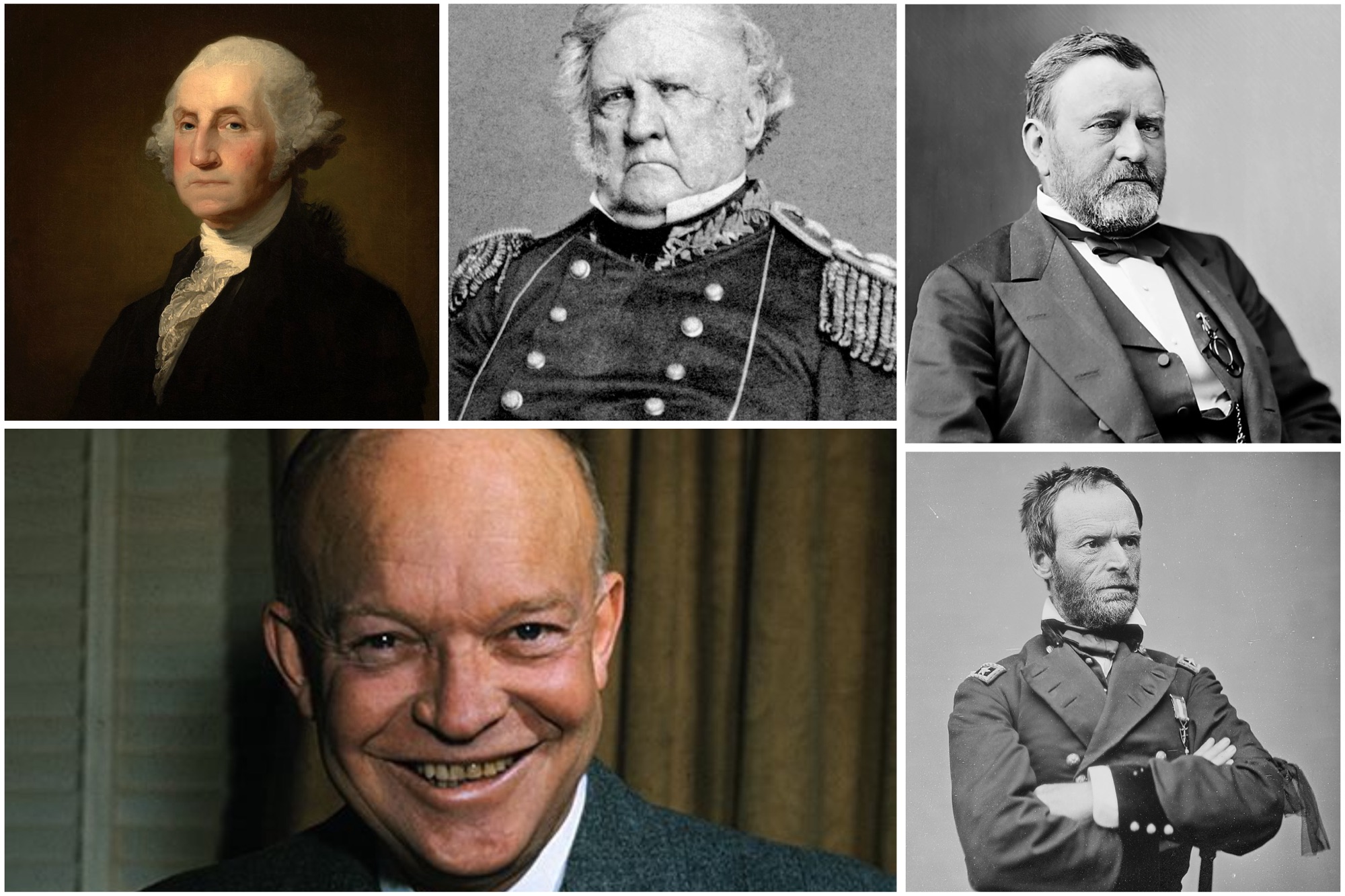From Washington’s crucial role in the American Revolutionary War to Eisenhower’s command during World War II, we examine some of the most distinguished military leaders in American history.
7. Dwight D. Eisenhower
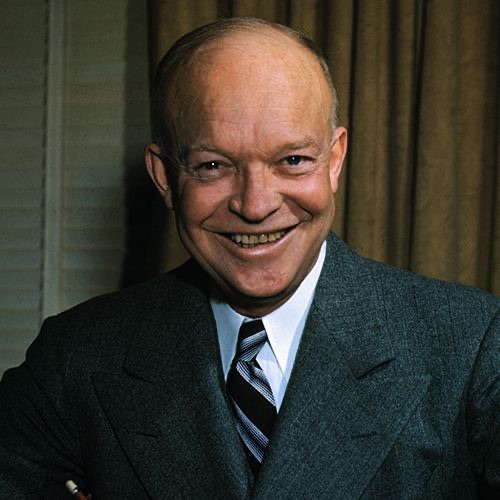
Dwight D. Eisenhower, with his exceptional leadership and diplomatic skills, was the WWII general responsible for executing Operation Overlord, one of history’s boldest military maneuvers.
The success of D-Day depended on meticulous planning and Eisenhower’s leadership. He directed the Allied forces in the largest amphibious invasion ever, leading to the liberation of Western Europe from Nazi control.
After the war, Eisenhower served as the Supreme Commander of NATO in the early Cold War period and later became the President of the United States. His strategic brilliance and diplomatic acumen were crucial in ending the war, cementing his status as one of the foremost military leaders in American history.
6. George S. Patton
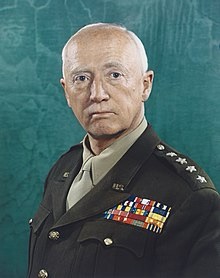
George S. Patton is regarded as one of the most esteemed generals of World War II, known for his strategic acumen and bold tactics. His aggressive command style made him a formidable opponent, particularly in North Africa and during the liberation of Europe. His resolute and charismatic leadership earned him the loyalty of his troops and the respect of his superiors.
A stickler for excellence, Patton held both his soldiers and himself to the highest standards. He drove his forces relentlessly, leading them from one victory to another, most notably during the crucial Battle of the Bulge and the Allied push into the heart of Europe.
Tragically, Patton’s life was cut short by a car accident, resulting in his death at the age of 60 in 1945, just two months after the war’s end.
5. Thomas ‘Stonewall’ Jackson
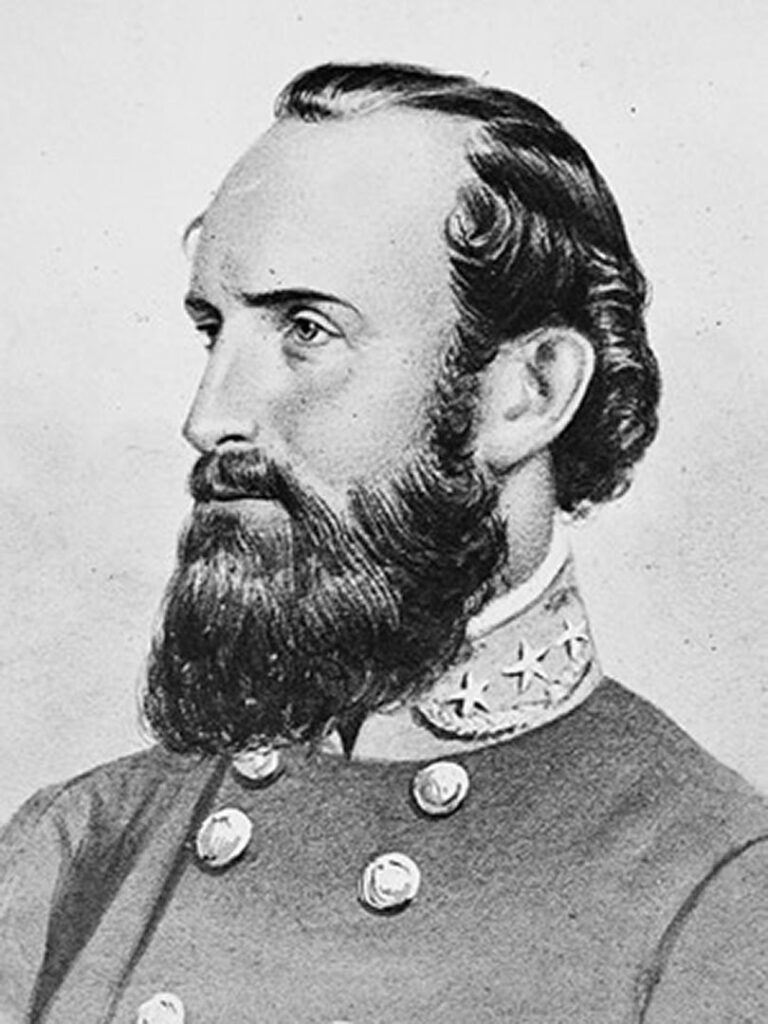
Thomas ‘Stonewall’ Jackson is renowned as one of the most skilled tacticians in American military history. His reputation was cemented when he and his brigade steadfastly faced intense Union artillery at the 1861 Battle of Bull Run, earning him his famous nickname.
Jackson was a commander known for his exceptional discipline and strategic foresight. His military brilliance was evident in his preference for launching unexpected assaults and his ability to rapidly mobilize his forces for offensive operations. The 1862 ‘Valley Campaign’ highlighted his prowess, as he led his troops to victory against Union forces through a series of decisive battles, demonstrating his skill in strategic misdirection and dynamic combat.
Jackson’s bold and innovative command style was tragically cut short at the Battle of Chancellorsville in 1863, when he was mortally wounded, ending his remarkable career at the age of 39.
4. William Sherman
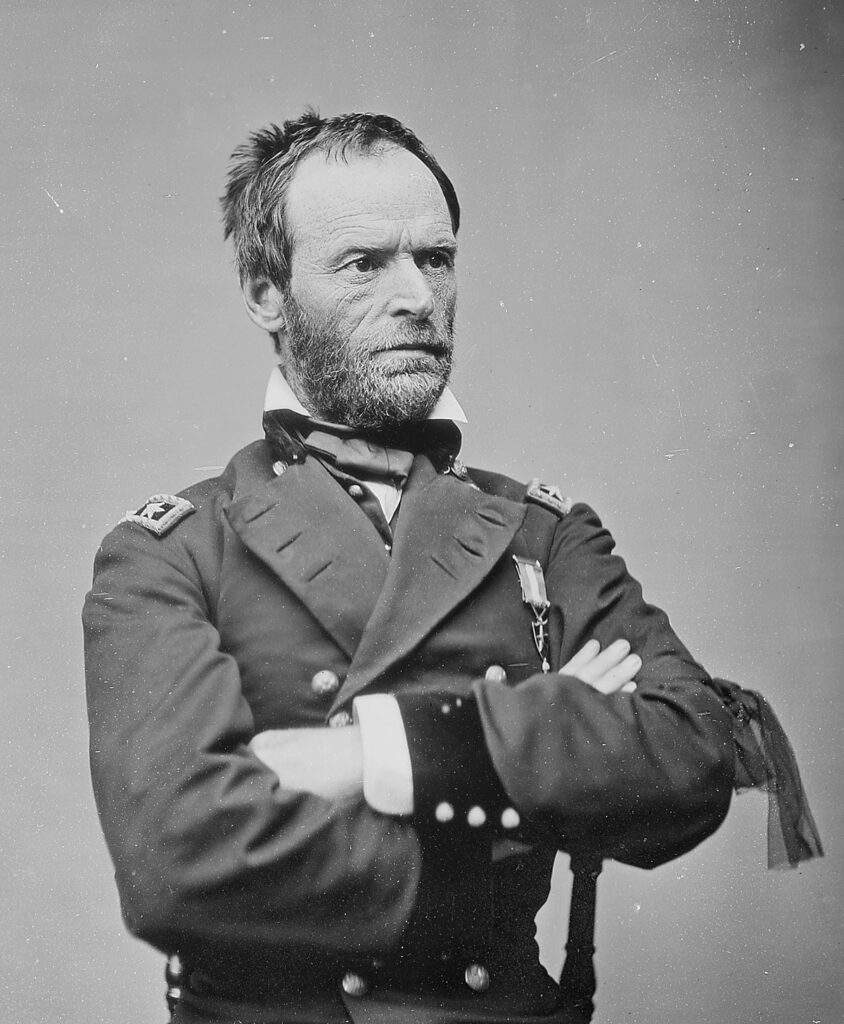
William Tecumseh Sherman, a prominent figure in the American Civil War, revolutionized warfare with his innovative tactics, significantly aiding the Union’s victory. A proponent of ‘total war,’ Sherman believed in targeting not only the enemy’s forces but also the resources that supported their war efforts.
His most famous campaign was the ‘March to the Sea.’ Starting in Atlanta, his forces cut a swath of destruction through Georgia, crippling the Confederacy’s military, industrial, and civilian infrastructure before capturing Savannah. This strategy left the Confederate forces in disarray and accelerated their surrender. Sherman’s strategic brilliance, relentless determination, and meticulous planning have secured his place among the most esteemed military leaders in American history.
3. Ulysses S. Grant
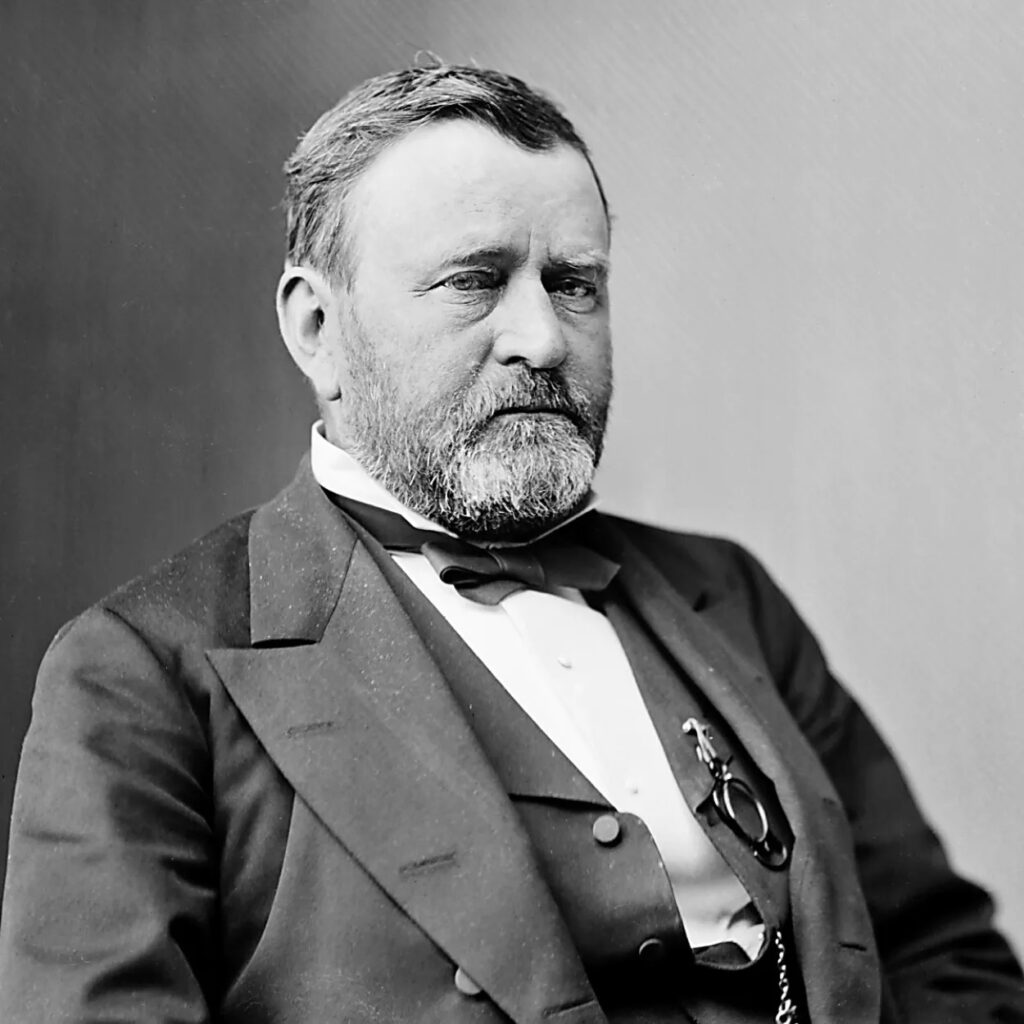
Ulysses S. Grant rose from obscurity to become the leading general of the Union forces in the American Civil War, known for his strategic foresight, unwavering resolve, and exceptional adaptability in battle.
Grant’s boldness and flexibility as a military tactician were unmatched. His expertise in logistics and coordination of large-scale campaigns set him apart as a remarkable commander.
The Vicksburg and Chattanooga campaigns showcased his innovative military tactics, employing flanking maneuvers and synchronized attacks to outsmart and defeat Confederate forces. Under Grant’s leadership, the Union secured victory in the Civil War, paving the way for the abolition of slavery in the United States.
2. Winfield Scott

Winfield Scott, a pioneer in military strategy, played a key role in advancing amphibious warfare tactics during the War of 1812 and the Mexican-American War in 1846. His meticulous strategic planning distinguished him as an exceptional leader.
His most notable success came during the Mexican-American War when he devised a bold plan to capture Mexico City. Scott’s forces executed a complex and daring amphibious assault at Veracruz, then advanced toward the capital, defeating Mexican forces at the Battles of Cerro Gordo and Chapultepec. After taking Mexico City, Scott maintained order while a peace treaty was negotiated, ending the conflict.
In addition to his tactical skills, Scott made significant contributions to modernizing the US Army. He improved combat readiness through advanced training methods, helping to transform the army into a professional force capable of defending the nation both domestically and internationally.
1. George Washington
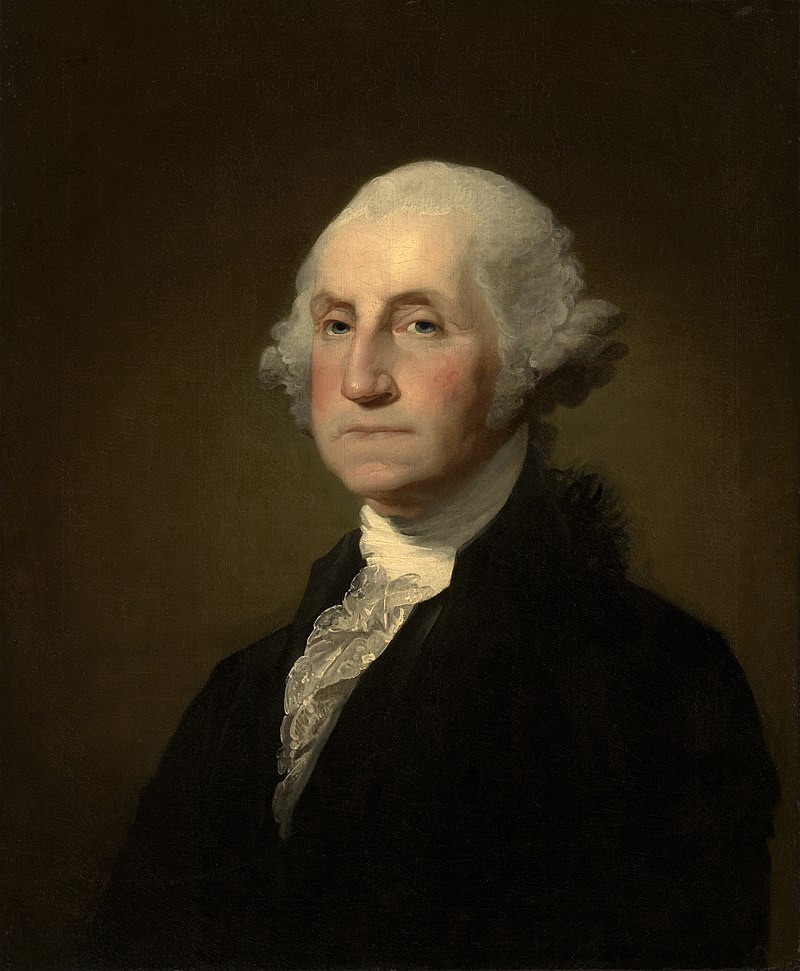
George Washington established his legacy as one of America’s foremost military leaders by transforming a disorganized group of insurgents into a formidable force capable of challenging the British Empire. His strategic use of unconventional warfare, including guerrilla tactics, surprise attacks, and strategic retreats, demonstrated his willingness to use any means necessary to achieve victory against overwhelming odds.
His crowning achievement was the 1781 Battle of Yorktown. In partnership with his French counterpart, the Marquis de Lafayette, Washington orchestrated a decisive victory for the Continental Army, leading to General Charles Cornwallis’s surrender and forcing Britain to negotiate peace. After the war and the establishment of the United States as an independent nation, Washington chose not to declare himself monarch. Instead, he participated in the democratic process and was inaugurated as the first President of the United States in 1789.
